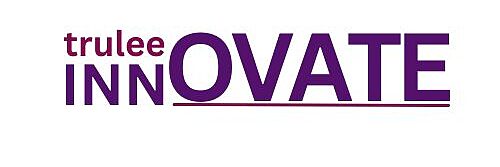Introduction to Business Automation
In the mid-20th century, the rise of computers and early software solutions allowed companies to automate data processing and business transactions. By the late 20th and early 21st centuries, advancements in artificial intelligence (AI) and cloud computing came into existence with all thees business automation tools that started operations across industries. Today, business automation software is a vital component of modern enterprises, enabling organizations to improve efficiency, reduce errors, and optimize workflows like never before. Now that all the organizations are using business automation software tools, it plays a vital role in modern enterprises.
What is Business Automation?
With the rise of automation tools, businesses are streamlining their operations, optimizing resource allocations, and focusing on the growth. Whether it’s a customer care, financial or marketing efforts business automation software plays a crucial role in modern enterprises.
Why is it Essential for Growth
Companies that mainly depends upon manual process often fave many difficulties with the cost,errors etc.Business process automation (BPA) helps to overcome these challenges by automating workflows, reducing turnaround times, and improving decision-making.
Key reasons why businesses need business automation services include:
- Time-saving: Automating repetitive tasks allows employees to focus on higher-value work.
- Cost reduction: Minimizing manual intervention leads to lower operational costs.
- Scalability: Automated processes can easily scale as a business grows.
- Consistency: Ensures tasks are completed with accuracy and standardization.
Key Benefits of Business Automation
Implementing business automation software can significantly enhance business operations. Here are the major benefits:
1. Increased Efficiency & Productivity
Automation reduces manual intervention, speeding up operations and reducing errors. Employees can focus on strategic tasks instead of repetitive work.
2. Enhanced Customer Experience
Automating customer support with WhatsApp business automation and AI chatbots ensures faster responses, leading to higher customer satisfaction.
3. Better Decision-Making with Data Insights
Automation tools provide real-time analytics and reports, helping businesses make data-driven decisions.
4. Improved Collaboration
By using cloud-based business automation tools, teams can collaborate seamlessly, regardless of location.
5. Cost Savings
Automating business processes reduces the need for additional manpower, leading to significant cost reductions.
Understanding Business Process Automation (BPA)
Business process automation (BPA) refers to the use of technology to automate complex workflows within an organization. BPA is not just about eliminating manual tasks but also about optimizing business workflow processes for better efficiency.
BPA is widely used in:
- Finance & Accounting: Invoice processing, payroll management, tax compliance.
- HR & Recruitment: Employee onboarding, leave management, performance tracking.
- Marketing & Sales: Automated email campaigns, lead nurturing, CRM updates.
Types of Business Automation: What Are the 4 Types of Automation?
It can be categorized into four main types:
1. Fixed Automation
Used in manufacturing industries where repetitive tasks are performed without variation. Example: Arranging of goods in automobile factories.
2. Programmable Automation
These machines are suitable for large production and it can be reprogrammed for different tasks
Example:Textile Production
3. Flexible Automation
Allows quick modifications for different products without stopping production. Example: Customizable software solutions in IT industries.
4. Intelligent Automation
Uses AI, machine learning, and robotic process automation (RPA) to automate decision-making processes. Example: AI chatbots and predictive analytics.

Top Business Automation Tools to Enhance Productivity
The right tools can transform how any businesses can operate. Few best automation tools include:
- Zapier: Connects different apps to automate workflows.
- HubSpot: Automates marketing, sales, and customer service processes.
- Trello & Asana: Automates task management and team collaboration.
- Zoho CRM: Automates customer relationship management.
- Slack: Automates internal team communication.
Choosing the Right Software for Your Needs
Selecting the right business automation software depends on factors like business size, industry, and automation needs. Key considerations:
- Scalability: Can the software grow with your business?
- Integration: Does it integrate with your existing tools?
- Ease of Use: Is the software user-friendly?
- Security: Does it offer data protection?
How Business Automation Services Improve Efficiency
Businesses that invest in business automation services experience a significant improvement in productivity. These services provide:
- Customized automation solutions tailored to specific business needs.
- Training and support to ensure seamless implementation.
- Continuous optimization to improve automation processes over time.
WhatsApp Business Automation: Transforming Customer Communication
WhatsApp business automation allows businesses to automate customer interactions using chatbots, quick replies, and automated responses. This enhances:
- Customer engagement: Instant replies to inquiries.
- Marketing campaigns: Scheduled promotional messages.
- Order management: Automated updates on order status.
Common Challenges in Implementing the tools
Despite its benefits, businesses may face challenges when implementing automation, including:
- Resistance to Change: Employees may be hesitant to adopt new technologies.
- High Initial Costs: Some automation solutions require significant investment.
- Integration Issues: Compatibility with existing software can be challenging.
How to Successfully Integrate Business Automation into Your Workflow
To ensure successful business automation, follow these steps:
- Identify repetitive tasks that can be automated.
- Choose the right automation tools based on business needs.
- Train employees to use automation software effectively.
- Monitor and optimize automation workflows regularly.
Future Trends in Business Automation
The future of business automation is driven by advancements in:
- Artificial Intelligence (AI): AI-powered automation for decision-making.
- Robotic Process Automation (RPA): Automating complex tasks with minimal human intervention.
- Cloud-based Automation: Remote access to automation tools.
Conclusion: The Road to a Smarter, Automated Business
Embracing business automation software and business automation tools is essential for staying competitive in today’s digital landscape. By leveraging business process automation, companies can streamline operations, enhance efficiency, and drive growth.
The future belongs to businesses that adopt these services to transform their workflows. Now is the time to take the first step towards a smarter, automated future!


